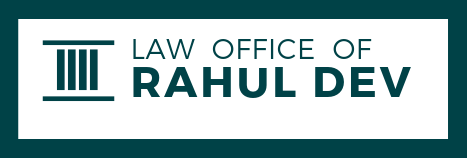Legal Implications for Mobile Application Developers
As all of us know, these days, mobile applications are used by almost every mobile user more than ever. Internet giants such as Facebook, Apple and Google as well as thousands of online businesses like Amazon, BBC, Wall Street Journal and British Airways offer mobile applications, but the growing popularity comes with few very important legal issues.
If you are a mobile app developer, or interested in becoming one, you’re not alone. As per a recent report, the mobile app revenue is set to soar to $46 billion in 2016, and smartphone adoption rates continue to increase. It does not matter much whether your app will serve a more niche market or is destined for an Angry Birds like fan following, you should essentially address traditional legal issues related to a new business venture.
It is always advisable to the mobile app developers to disclose all the monetary figures, i.e. if the app has a charge associated with it, whether as part of the initial purchase or within the app itself, the same shall be disclosed upfront using plain language in the description. More specifically, the Money Factor shall not be hidden if the app is targeted at kids. For example, there may be a situation where parents will be downloading the free app but kids will be playing it, and hence it should be considered whether the in-game charges make sense from a business standpoint.
Apart from legal issues related to the mobile app developer, there are various essential data protection requirements every mobile app publisher needs to know, which includes, rights in software and the risks and rewards of app development, rights in the content: intellectual property (IP) and licensing issues in a mobile environment, Developing a mobile app across multiple platforms with different rules, Mobile operators and their role to protect consumers, Consumers and consumer terms & conditions, issues and developments related to Children & Apps, and the like.
As an app developer, it shall be clearly understood that in starting a business where creating a mobile app is the business agenda, intellectual property (IP) forms the main asset, which includes all possible intangible assets, including, but not limited to, the basic appearance, designs, graphics, source code, name, look and feel of the app, and the like.
In addition to protection of intangible assets through intellectual property rights, incorporating the business is highly advisable.
Furthermore, if it is anticipated that at some point in near future, there may be a need for funds from outside investors, then, in such situation, it is advisable to incorporate a second company, which will permit to have one company for holding rights to all the intangible / IP assets (which are most valuable), and license / assign such rights to the second company that will be the forefront for large scale business operations, including marketing and sales. Such an arrangement provides better asset protection in case the second company, which is the operating entity in market, is ever sued.
Another most common mistake made by many mobile app developers, mobile app startups and mobile app small businesses is that they fail to enter into written work-for-hire agreements with their freelancers. They ignore the fact that as the app is being developed, and every time a source code for the mobile app is written by the freelancer, copyrightable material is being created by that freelancer. The dispute arises at a later stage when it becomes nearly impossible to decide the ownership of the copyright to that code. As per general principle of copyright law, the copyright is owned by the freelance developer who wrote such code, unless there exists a work-for-hire agreement executed between the developer and the company before the commencement of the work. In case of absence of such agreement, even if the company paid the freelance developer for writing the source code, the copyright to such code would still belong to the freelance developer. Similarly, there may be further issues with the copyright ownership of the graphics, designs, layout, and every other aspect of the mobile app, in case a well-drafted work-for-hire agreement is not executed prior to beginning any work related to the mobile app.
With regards to protection of business idea and other intangible assets related to mobile app, please read our previous post regarding protection of internet business idea. Almost all the major protection mechanisms are applicable to mobile apps as well.
To know more about us, mail us at rd (at) patentbusinesslawyer (dot) com.

sir,
I am also developing an mobile application for which I have signed an contract with an software company. yet I have not signed the NDA , so can you help me to add some special clauses which will help me to gain the copyrights of the product and source code with me.
LikeLike
Please feel free to mail us to discuss things in detail. Thanks.
LikeLike